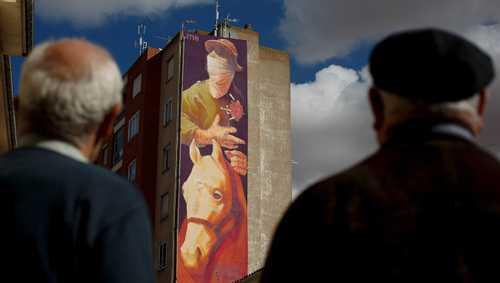Beliefs have a social purpose. Does this explain delusions?
Curated from: psyche.co
Ideas, facts & insights covering these topics:
4 ideas
·513 reads
6
Explore the World's Best Ideas
Join today and uncover 100+ curated journeys from 50+ topics. Unlock access to our mobile app with extensive features.
Delusional beliefs and madness
- People with psychosis may believe the neighbours are poisoning them; they could believe colleagues have hired someone to kill them.
- Psychiatrists define beliefs as delusions when they consider them to be irrational and unfounded.
- French philosopher Michel Foucault defined 'madness' as the absence of reason or rational thought.
- German-Swiss psychiatrist Karl Jaspers stated that delusions are incomprehensible beliefs that don't reflect the real world.
- Today, The American Psychiatric Association stated delusions are beliefs that are clearly implausible and not understandable to same-culture peers.
31
200 reads
Delusional concerns tied to our social world
The focus on irrationality is missing the point. To label delusions as irrational means that all 'normal' cognition is rational, which is not true as our beliefs are disproportionately influenced by multiple factors.
A new theory suggests that we form delusions to help us understand and survive in our social environment. These processes allow us to live and cooperate with people by understanding their intentions.
25
104 reads
Why people form delusional beliefs
Beliefs are formed in the first place to enable us to survive in our social environment, to cooperate with each other, and mutually reflect and solve problems. However, beliefs differ across social groups. For example, beliefs about the risk levels of specific activities during the pandemic vary greatly, such as the wearing of masks.
When we consider the social role of beliefs, we can better understand how delusions take shape. A person that has been repeatedly threatened may be wary of people in the future, even if it seems irrational.
29
101 reads
Delusions and our social context
Delusions are often thought of as the extreme part of a belief. People suffering from delusions remain unchanged even in the face of contrary evidence. Their beliefs may become increasingly intense and disruptive.
Research shows the importance of understanding the social environment of a delusional personal: instead of dismissing delusions as irrational, consider the social conditions that contributed to their distressing beliefs.
29
108 reads
IDEAS CURATED BY
Andrea A.'s ideas are part of this journey:
Learn more about health with this collection
Creating a productive schedule
Avoiding procrastination
Prioritizing tasks effectively
Related collections
Similar ideas
4 ideas
We Learn Faster When We Aren’t Told What Choices to Make
scientificamerican.com
3 ideas
4 ideas
Read & Learn
20x Faster
without
deepstash
with
deepstash
with
deepstash
Personalized microlearning
—
100+ Learning Journeys
—
Access to 200,000+ ideas
—
Access to the mobile app
—
Unlimited idea saving
—
—
Unlimited history
—
—
Unlimited listening to ideas
—
—
Downloading & offline access
—
—
Supercharge your mind with one idea per day
Enter your email and spend 1 minute every day to learn something new.
I agree to receive email updates
